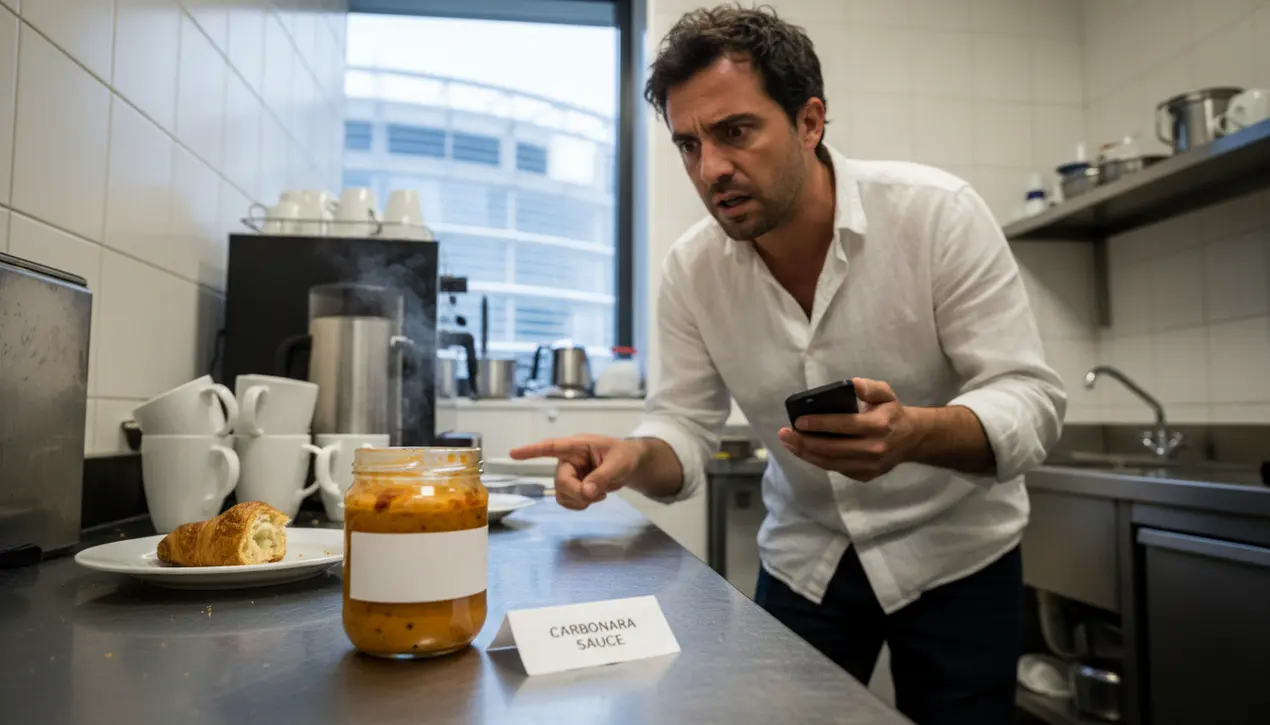
Politicsgovernments & cabinetsPublic Statements
Italian Minister Criticizes EU Parliament's Carbonara Sauce Recipe.
ME
Megan Hill
22 hours ago7 min read1 comments
A jar of carbonara sauce for sale at the European Parliament in Brussels has, in a move that feels both bizarre and utterly predictable, managed to whip the Italian political and culinary worlds into a frothing fury, proving once again that in Italy, the dinner table is a sacred battleground where national identity is forged one pasta dish at a time. Italy’s agriculture minister, Francesco Lollobrigida, a man whose very name evokes a certain cinematic grandeur, unleashed a social media broadside worthy of a seasoned food critic, posting a picture of the offending pot with the kind of indignation usually reserved for a geopolitical scandal.The core of his ire, a point that would make any nonna from Rome to Naples clutch her pearls, was the sauce’s inclusion of pancetta—a cured pork product similar to bacon but, in the eyes of purists, a culinary heresy of the highest order. True carbonara, the dish that fuels the soul of Rome, is a deceptively simple alchemy of just five ingredients: guanciale (cured pork cheek), eggs, Pecorino Romano cheese, black pepper, and pasta water, creating a creamy, silken sauce without a drop of cream in sight.The use of pancetta, while a common international shortcut, is seen as a fundamental misstep, a lazy substitution that strips the dish of its distinctive, robust flavor and its cultural soul. This is not the first time Italy has gone to the mattresses over food authenticity; the country has a long and storied history of culinary protectionism, having previously launched legal and cultural wars over the integrity of Neapolitan pizza, Parmigiano Reggiano, and even the proper composition of pesto Genovese.This incident taps directly into the ongoing, often fraught dialogue between Italy and the broader European Union regarding Protected Designation of Origin (PDO) statuses and the defense of its gastronomic heritage against what is often perceived as homogenization or, worse, bastardization by the EU's internal market. One can almost hear the ghost of Pellegrino Artusi, author of the seminal 1891 cookbook 'Science in the Kitchen and the Art of Eating Well,' sighing in despair from the great beyond.The reaction from Italian politicians was swift and united across party lines, a rare moment of consensus in a famously fractious political landscape, with figures from the left and right decrying the EU's recipe as a symbol of cultural insensitivity. For Minister Lollobrigida, this was more than a sauce; it was a potent political symbol, a chance to champion the 'Made in Italy' brand and position himself as a defender of national tradition against the faceless bureaucracy of Brussels, a narrative that resonates deeply with a significant portion of the electorate.The episode raises poignant questions about the very nature of cultural identity within a union of nations: where does respectful adaptation end and disrespectful appropriation begin? Is this a harmless attempt to cater to diverse palates in a parliamentary canteen, or is it a subtle erosion of a national treasure? Food historians note that carbonara itself likely has roots in the post-World War II era, possibly born from the interaction between Italian pasta and American soldiers' rations of bacon and powdered eggs, adding a layer of historical irony to the current uproar. Yet, decades of refinement have cemented its status as an immutable Roman classic.The consequences extend beyond hurt feelings; for Italian producers of guanciale and Pecorino Romano, such misrepresentations can have tangible economic impacts, diluting the value of their meticulously crafted products. In the age of social media, this culinary skirmish was fought not in newspapers but on Instagram and Twitter, where images of the jarred sauce went viral, accompanied by a chorus of Italian outrage and international bewilderment, demonstrating how digital platforms can amplify a niche food debate into a global talking point.Ultimately, the great carbonara controversy of the EU Parliament is a microcosm of a larger, perpetual tension—the struggle between preserving the authenticity of a centuries-old culinary tradition and the inevitable, sometimes clumsy, interpretations that occur when cultures intermingle. It’s a reminder that for Italians, food is never just fuel; it is history, it is family, it is art, and they will defend its integrity with a passion that most nations reserve for their constitutions.
#lead focus news
#Italy
#European Parliament
#carbonara sauce
#culinary tradition
#Francesco Lollobrigida
#food authenticity
#diplomatic stir
Stay Informed. Act Smarter.
Get weekly highlights, major headlines, and expert insights — then put your knowledge to work in our live prediction markets.
Comments
Loading comments...
© 2025 Outpoll Service LTD. All rights reserved.